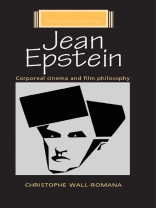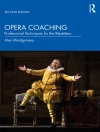If cinema can be approached as poetry and philosophy, it is because of Jean Epstein. Cocteau, Buñuel (who was his assistant), Hitchcock, Pasolini and Godard, and theoreticians Kracauer, Deleuze and Rancière are directly influenced by Epstein’s pioneering film work, writings, and concepts. This book is the first in English to examine his oeuvre comprehensively.
An avant-garde artist and an anti-elitist intellectual, Epstein wanted to craft moments of pure transformative cinema. Using familiar genres – melodramas and documentaries – he hoped to heal viewers of all classes and hasten social utopia. A lover of cinema as cognitive and sensorial technology, and a poet of the screen, he pushed cinematography – as photogénie – towards the experimental sublime, through daring close-ups, rhythmic montage, slow motion, even reverse motion.
Polish-born, half-Jewish, and the author of a treatise on homosexuality, Epstein has been unfairly relegated to the shadows of film history. This book restores him to the limelight of interwar world cinema, on a par with Renoir, Lang, Capra and Eisenstein.
Table des matières
Series Editors’ Foreword
Introduction: Epstein at the crossroads
Chapter 1: From literary modernism to photogénie
Chapter 2: Avant-garde working class melodramas
Chapter 3: Technology, embodiment and homosexuality
Chapter 4: Brittany, the edge of the modern world
Chapter 5: Documentaries and sound films
Chapter 6: ‘A young Spinoza’: philosophy of the cinema
Conclusion: Epstein as pioneer of corporeal cinema
Filmography
Select Bibliography
Index
A propos de l’auteur
Christophe Wall-Romana is Associate Professor in the Department of French and Italian and affiliated Faculty in Moving Image Studies at the University of Minnesota












